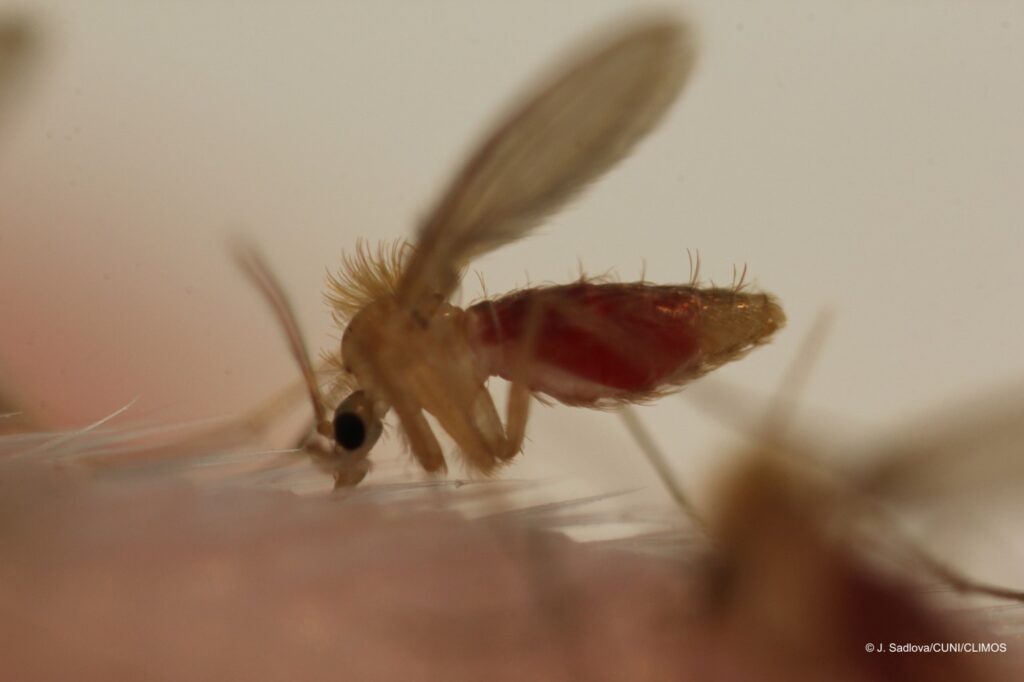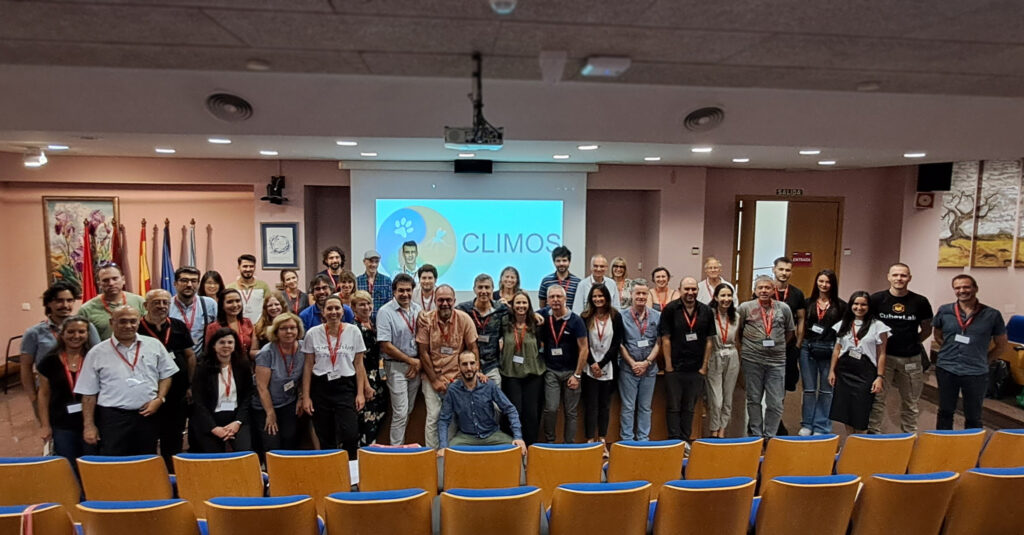Climate change is already having adverse effects on the transmission and spread of vector-borne diseases, and the severity of these impacts is expected to escalate. The CLIMOS project is playing an important role in mitigating and preventing the transmission and spread of vector-borne diseases.

Every year, more than one billion people are affected, and approximately one million people die from vector-borne diseases, including leishmaniasis, malaria, dengue and schistosomiasis (WHO, 2022). The ongoing impact of climate change on the transmission and proliferation of vector-borne diseases is evident and foreseen to exacerbate. In response to this evolving climate scenario, it is imperative that our efforts to prevent and manage vector-borne diseases should significantly escalate.
Various vectors are already extending their geographic and altitudinal ranges, while the duration of their active seasons is prolonging. These tendencies are expected to persist with the ongoing warming of the climate. Adaptations at the local level will be specific to the context and it is essential for clinicians to remain vigilant regarding shifts in risk within the populations they serve.
To safeguard public health and promote equity in a warmer world, substantial investments in vector control are crucial, including the adaptation of measures to swiftly changing circumstances and the adoption of new technologies and strategies. Regrettably, relying solely on adaptation strategies is not a sustainable long-term solution. Urgent and substantial mitigation efforts are imperative to ensure global temperatures remain below critical thresholds.
Vector-borne diseases
Vector-borne diseases refer to human illnesses caused by parasites, viruses, and bacteria transmitted through various carriers, such as sandflies, mosquitoes, fleas, ticks, among others. Annually, almost one million fatalities result from ailments like leishmaniasis, malaria, dengue, schistosomiasis, human African trypanosomiasis, Chagas disease, yellow fever, Japanese encephalitis, and onchocerciasis.
These diseases predominantly burden tropical and subtropical regions, disproportionately impacting impoverished communities. The spread of vector-borne diseases is influenced by a complex interplay of demographic, environmental, and social factors. Global travel, trade, unplanned urbanization, and other factors contribute to their distribution.
The CLIMOS project
The primary objective of CLIMOS is to provide support for the mitigation of climate and climate change-induced impacts on vector-borne diseases. The initiative operates on Eco-health and One Health principles, aiming to quantify climate and environmentally related drivers influencing sand fly vector populations and the associated sand fly-borne diseases (SFBDs) across Europe.
CLIMOS project aims to develop a climate monitoring and decision support framework for sand fly-borne diseases detection and mitigation, and to do so, has already collected – only this year – sand fly samples in 199 points, on 11 European and neighbouring countries (Slovenia, Turkey, France, Italy, Spain, Portugal, Germany, Israel, Czech Republic, Croatia and Austria). CLIMOS also developed meaningful scenarios with the support of outstanding stakeholders to develop an Early Warning System which will support from Public Health authorities, veterinarians, to citizens in preventing human and animal infections.
Between October 2nd and 4th, the CLIMOS project, an acronym for Climate Monitoring and Decision Support Framework for Sand Fly-borne Diseases Detection and Mitigation with Cost-benefit and Climate-policy Measures held a General Assembly Meeting at the University of Murcia. During the General Meeting, partners convened to discuss the advancements and strategies crucial to the success of CLIMOS. The meeting focused on devising measures to monitor climate-related factors and develop effective strategies to mitigate the potential impacts of SFBDs.
“The CLIMOS General Meeting at the University of Murcia marked a pivotal moment in our collective efforts to combat sand fly-borne diseases in the face of climate change,” stated Carla Maia, coordinator of CLIMOS project. “This initiative represents a concerted approach toward safeguarding public and animal health and fostering a more resilient society against climate-induced health threats.”
The CLIMOS initiative is a collaborative effort involving a consortium of 29 partners from 16 countries dedicated to enhancing understanding and developing actionable insights into climate and environmental influences on the prevalence of SFBDs. By achieving these objectives, the initiative aspires to influence policies, foster sustainable practices, and ultimately reduce the impact of climate-driven vector-borne diseases across the European region.
The European Climate Change and Health Cluster
The CLIMOS project is part of the European Climate-Health Cluster, an Horizon Europe cooperation between 6 European research and innovation projects: BlueAdapt, CATALYSE, CLIMOS, HIGH Horizons, IDAlert, and TRIGGER. The Cluster is collaborating to increase the societal and policy impact of EU-funded research linked to climate, health and policy, and aims to address climate change-induced health risks and help preparedness and adaptation.
The Climate-Health Cluster is connecting significant initiatives in climate change and health to provide scientific evidence and policy-related advice to contribute to a more resilient Europe, and beyond.
The Cluster will collaborate with researchers and academia, climate and environment professionals, policymakers, policy experts, funding agencies, NGOs, healthcare providers, patient organisations, the healthcare industry, civil society and citizens.
For more information about the CLIMOS project, visit https://climos-project.eu/
